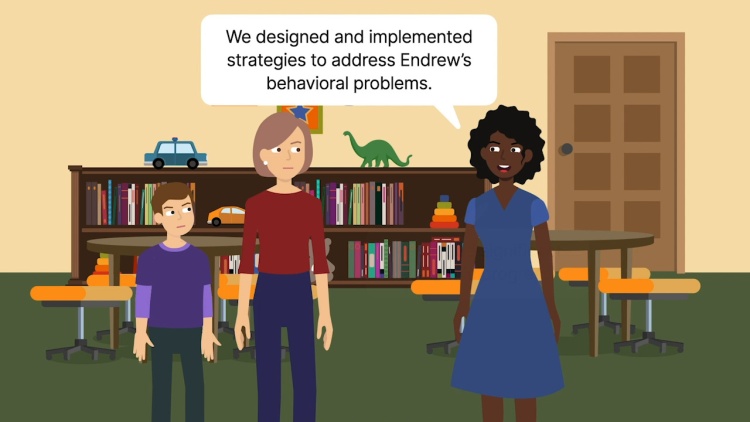Endrew F. v. Douglas County School District
United States Supreme Court
137 S.Ct. 988 (2017)
- Written by Rose VanHofwegen, JD
Facts
At two years old, Colorado student Endrew F. was diagnosed with autism. Endrew later demonstrated behaviors that impeded his ability to learn in a regular classroom. Through the fourth grade, Endrew attended school in the Douglas County School District (defendant). Although the district provided him an individualized education program (IEP), his parents (plaintiffs) thought it basically carried over the same objectives from year to year. Seeing little meaningful progress, Endrew’s parents moved him to a private school specializing in teaching autistic children, which developed specialized strategies to address his most problematic behaviors. Over the next six months, Endrew improved significantly and made academic progress unseen in public school. Endrew’s parents then met with the public school district once again, which presented a new IEP for fifth grade. However, Endrew’s parents thought it was basically the same as the IEP used the year before, despite Endrew’s progress in private school showing he benefitted from a different approach. Endrew’s parents filed a complaint with the Colorado Department of Education claiming that the school district had failed to meet the requirements of the Individuals with Disabilities Education Act (IDEA), then sought review in federal court. The district court found the annual modification to Endrew’s IEP enough to satisfy the IDEA, and the Tenth Circuit affirmed, reasoning that it allowed at least minimal progress. Endrew’s parents appealed.
Rule of Law
Issue
Holding and Reasoning (Roberts, C.J.)
What to do next…
Here's why 905,000 law students have relied on our case briefs:
- Written by law professors and practitioners, not other law students. 47,100 briefs, keyed to 995 casebooks. Top-notch customer support.
- The right amount of information, includes the facts, issues, rule of law, holding and reasoning, and any concurrences and dissents.
- Access in your classes, works on your mobile and tablet. Massive library of related video lessons and high quality multiple-choice questions.
- Easy to use, uniform format for every case brief. Written in plain English, not in legalese. Our briefs summarize and simplify; they don’t just repeat the court’s language.





